Search Engine Optimization (SEO) is a multifaceted digital marketing strategy that plays a pivotal role in increasing a website’s visibility and organic traffic. In today’s digital age, where businesses rely on the internet to reach their target audience, understanding the intricacies of SEO is essential. In this comprehensive exploration, we will delve into the world of SEO, dissecting its various components, best practices, and the ever-evolving landscape of search engines.
The Essence of SEO
At its core, SEO is about optimizing a website to enhance its ranking on search engine results pages (SERPs). This process involves a combination of on-page and off-page tactics to ensure that search engines, like Google, can efficiently crawl, index, and understand your website’s content. The ultimate goal? To secure a prime spot on the coveted first page of search results for relevant keywords.
Keywords: The Pillar of SEO
Keywords are the lifeblood of SEO. These are the words and phrases that users type into search engines when seeking information, products, or services. Effective keyword research is the foundation of an SEO strategy. It involves identifying the keywords your target audience uses, assessing their search volume, and gauging their competitiveness.
On-Page SEO: Crafting a Search-Friendly Website
On-page SEO focuses on optimizing individual web pages to improve their search engine ranking. This includes optimizing title tags, meta descriptions, headers, and content. However, it’s not just about stuffing keywords; it’s about providing value to users by delivering relevant and informative content.
Off-Page SEO: Building Digital Authority
Off-page SEO, on the other hand, revolves around establishing your website’s authority and relevance through external factors. This includes link building, social media marketing, and other strategies that take place away from your website. High-quality backlinks from reputable websites are like upvotes from the internet community, signaling to search engines that your content is trustworthy and valuable.
Technical SEO: The Mechanics Behind the Scenes
Technical SEO is the behind-the-scenes work that ensures search engines can efficiently crawl and index your website. This involves optimizing website speed, improving mobile-friendliness, and enhancing site structure and navigation. Search engines favor websites that offer a seamless and user-friendly experience.
Content Is King: The Power of Quality Content
Content is the cornerstone of SEO. Quality, relevant, and engaging content not only attracts visitors but also keeps them on your website longer. Search engines recognize content that addresses user intent and rewards it with higher rankings. From blog posts to videos, your content strategy should align with your audience’s needs and preferences.
The Evolving Algorithms
Search engines continuously refine their algorithms to provide users with the most relevant and valuable search results. Google, in particular, regularly updates its algorithm, with core updates occurring several times a year. These updates can have a significant impact on website rankings, making it essential to stay informed about industry changes.
SEO Trends to Watch
As the digital landscape evolves, so do SEO trends. Mobile SEO, voice search optimization, and the rise of featured snippets are just a few trends that have emerged in recent years. Staying ahead of the curve by adapting your SEO strategy to these trends is crucial for maintaining and improving your website’s ranking.
Measuring Success: The Role of Analytics
To gauge the effectiveness of your SEO efforts, you need to rely on data and analytics. Tools like Google Analytics and Google Search Console provide valuable insights into website traffic, user behavior, and keyword performance. Analyzing this data allows you to make informed decisions and adjustments to your strategy.
The Local SEO Advantage
For businesses with physical locations, local SEO is a game-changer. This strategy optimizes your online presence for local searches, ensuring that your business appears in local packs and map results. Consistency in your NAP (Name, Address, Phone number) information across the web is a critical component of local SEO.
SEO and the User Experience
User experience (UX) is intrinsically linked to SEO. A website that offers a seamless, intuitive, and accessible experience not only pleases users but also satisfies search engines. Google, for instance, considers page speed, mobile-friendliness, and secure browsing (HTTPS) when ranking websites.
International SEO: Reaching Global Audiences
For businesses targeting international markets, international SEO is the path to success. This involves tailoring your SEO strategy to different languages and regions, addressing cultural nuances and preferences. Implementing hreflang tags and geotargeting are essential elements of this approach.
The Costs of SEO
Investing in SEO is essential for most businesses, but the costs can vary significantly. Factors that influence pricing include the competitiveness of your industry, the state of your current website, and the specific services you require. However, it’s important to view SEO as a long-term investment that can yield substantial returns.
SEO vs. Paid Advertising
SEO is often compared to paid advertising, such as Google Ads. While paid advertising offers immediate visibility, SEO provides sustainable long-term results. It’s not uncommon for businesses to utilize both strategies, with paid advertising complementing their organic search efforts.
Choosing the Right SEO Partner
Many businesses opt to work with an SEO agency or consultant to navigate the complexities of SEO. When selecting a partner, consider their experience, track record, and alignment with your goals. An effective SEO partner should act as an extension of your team, helping you achieve your digital marketing objectives.
The Ongoing Journey of SEO
In this in-depth exploration, we’ve journeyed through the world of SEO, uncovering its essential components, best practices, and the dynamic nature of search engines. SEO is not a one-time task but an ongoing commitment to improving your online presence. As algorithms evolve and technology advances, adapting your strategy to meet the changing demands of the digital landscape is the key to long-term success in the online realm. With a well-executed SEO strategy, you can enhance your website’s visibility, attract a larger audience, and ultimately achieve your digital marketing objectives.
Deciphering the World of Search Engine Optimization and SEO
In a digital age where the internet reigns supreme, understanding the fundamental concepts of Search Engine Optimization (SEO) is paramount. SEO is the driving force behind a website’s online visibility, making it a vital component of any successful digital strategy. In this comprehensive analysis, we will unravel the intricate web of SEO, explore its core principles, and emphasize the importance of this dynamic field.
Demystifying SEO
At its core, SEO is the art and science of improving a website’s organic visibility on search engine results pages (SERPs). This intricate process encompasses various techniques and strategies aimed at enhancing a website’s ranking for specific keywords. Ultimately, the goal is to secure a prime position on the first page of search results.
Keywords: The Cornerstone of SEO
Keywords serve as the foundation of SEO. They are the words and phrases that users type into search engines to find information, products, or services. Effective SEO begins with meticulous keyword research, which involves identifying the keywords your target audience uses, evaluating their search volume, and assessing their competitiveness.
On-Page SEO: Crafting Search-Friendly Websites
On-page SEO revolves around optimizing individual web pages to improve their search engine ranking. This entails optimizing title tags, meta descriptions, headers, and the content itself. However, it’s not simply about keyword stuffing; it’s about providing valuable content that satisfies user intent.
Off-Page SEO: Establishing Digital Authority
Conversely, off-page SEO focuses on building a website’s authority and relevance through external factors. This includes link-building, social media marketing, and other strategies that transpire away from the website. High-quality backlinks from reputable websites act as endorsements, indicating to search engines that your content is trustworthy and valuable.
Technical SEO: The Mechanics Behind the Curtain
Technical SEO is the hidden machinery ensuring that search engines can efficiently crawl and index your website. This aspect involves optimizing website speed, enhancing mobile-friendliness, and improving site structure and navigation. Search engines prefer websites that provide a seamless and user-friendly experience.
Content Rules: The Power of Quality Content
Content is the heart of SEO. High-quality, relevant, and engaging content not only attracts visitors but also keeps them on your website longer. Search engines reward content that addresses user intent with higher rankings. Whether it’s through blog posts, videos, or other forms of content, your strategy should align with your audience’s needs and preferences.
The Ever-Evolving Algorithms
Search engines consistently fine-tune their algorithms to provide users with the most pertinent and valuable search results. Google, in particular, frequently updates its algorithm, introducing core updates multiple times a year. These updates can significantly impact website rankings, making it imperative to stay informed about industry changes.
Trends in SEO
As the digital landscape evolves, so do SEO trends. The emergence of mobile SEO, optimization for voice search, and the prominence of featured snippets are just a few trends that have materialized in recent years. Keeping ahead of the curve by adapting your SEO strategy to these trends is vital for maintaining and improving your website’s ranking.
Measuring Success: The Role of Analytics
Data and analytics are instrumental for evaluating the effectiveness of your SEO efforts. Tools like Google Analytics and Google Search Console provide invaluable insights into website traffic, user behavior, and keyword performance. Analyzing this data empowers you to make informed decisions and adjust your strategy as necessary.
Local SEO: Thriving in Local Markets
Local SEO is a game-changer for businesses with physical locations. This strategy optimizes your online presence for local searches, ensuring that your business appears in local packs and map results. Consistency in your NAP (Name, Address, Phone number) information across the web is a critical element of local SEO.
SEO and User Experience (UX)
The user experience is inherently intertwined with SEO. A website that offers a seamless, intuitive, and accessible experience not only pleases users but also satisfies search engines. Google, for instance, considers factors such as page speed, mobile-friendliness, and secure browsing (HTTPS) when ranking websites.
International SEO: Reaching Global Audiences
For businesses targeting international markets, international SEO is the pathway to success. This approach involves adapting your SEO strategy to different languages and regions, addressing cultural nuances and preferences. Implementing hreflang tags and geotargeting are essential components of this approach.
The Costs of SEO
Investing in SEO is essential for most businesses, but the costs can vary significantly. Factors that influence pricing include the competitiveness of your industry, the state of your current website, and the specific services you require. It’s important to view search engine optimization and seo as a long-term investment with the potential for substantial returns.
SEO vs. Paid Advertising
While search engine optimization and seo offers sustainable, long-term results, paid advertising, such as Google Ads, provides immediate visibility. Many businesses use both strategies in tandem, with paid advertising complementing their organic search efforts.
Selecting the Right SEO Partner
Navigating the intricacies of SEO can be challenging, which is why many businesses choose to collaborate with SEO agencies or consultants. More, More. More. more.


